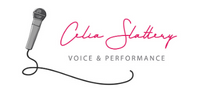Student Performances
Prepare for a career as a professional singer –
or just sound like one.
Sound Your Best and Get the Gig !
Our students have a wide range of singing goals. They all have one thing in common and that's a passion for singing.
Touring singers who want to stay healthy on the road
Aspiring professionals
Actors trying to break into musical theater
Instrumentalists who want to sing better background and lead vocals
High School and College students auditioning for shows or applying to a conservatory
Classically trained singers who want to crossover into CCM
Singers and speakers recovering from vocal health injuries
Beginners who are just starting to explore their passion for singing.
Our goals for every student are to be able to sing accurately, in tune and achieve at least two octaves of consistent tone (“mix”). We help every student build the stamina necessary for professional-level singing.
Students report that singing feels easier and that as a result, they feel more confident and better able to express themselves.
Our students are interested in singing Contemporary Commercial Music like jazz, pop, rock, folk, musical theater, R&B.
Watch performances from studio showcases!
JAZZ
Musical Theater
Pop/Rock
FAQs
What is CCM?
CCM stands for “Contemporary Commercial Music,” ie: jazz, pop, rock, folk, musical theater, R&B.
It’s a relatively new term used in the vocal pedagogy community to replace the word “non-classical” – implying that our American popular styles are finally getting the respect they deserve!
Contrary to what some classical teachers may tell you, CCM singing is different than classical singing. It requires a different approach and an understanding of the stylistic parameters of each genre.
How do Voice Lessons actually work?
Voice Lessons can best be compared to physical training for the voice. Each student is given tailor-made exercises to address their unique voice, taking into consideration their current strengths and weaknesses as well their musical goals.
These exercises include posture and breathing exercises and vocalises – singing exercises which improve tone, extend range, increase strength, and smooth out breaks.
During each lesson we also work on repertoire of your choice. We approach it from a number of perspectives, including technique, style, and musicianship. Many students also use part of their lesson time to get career advice, performance coaching, or feedback on their songwriting.
What if I've had vocal health problems?
Any vocal health problems should be checked out by a laryngologist who works with singers. (Here in Boston, we have an excellent facility in the MGH Voice Center). If you have had surgery or speech therapy, and have been told you’re ready to take singing lessons, we can work with you to retrain your voice. We often receive referrals from clinics to do just that and have helped many students get back to singing again – better than ever! If, on the other hand, you have some troubling symptoms but have not had them checked out, we may refer you to a doctor in oder to make sure you’re ready for vocal training.
What results can I expect?
Our goals for every student are:
-- To be able to sing accurately, in tune.
-- To achieve at least two octaves of consistent tone (“mix”),
-- To build the stamina necessary for professional-level singing.
Students report that singing feels easier and that as a result, they feel more confident and better able to express themselves.
How long will it take?
How quickly you reach these goals depends upon many factors including:
-- Whether you have had any vocal health problems
-- What kind of training and experience (if any) you have had in the past
-- How much you practice
We always suggest that students make a minimum commitment of six months in order to see significant results. Some students see improvement much more quickly.
On the other hand, professional singers, like professional athletes, often have coaches throughout their careers. We’ve designed our programs and packages with flexible options for singers at every stage of their journey.
How much should I practice?
That depends on what your goals are and how much time you have. Some consistent practice – even ten minutes a day – is better than doing a big blow-out session every once in a while. (Just like training at the gym!) If you are singing professionally, or want to be, you need to aim for much more. See this article for more information about practicing.
Do I need to read music?
No! While it’s helpful to have some knowledge of music theory, many singers do not, and are able to learn entirely by ear.
If you want to learn more theory, that can be incorporated into your lessons, or we can recommend some outside resources.
Great! What's the next step?
Click here to set up your intro session, or contact us at [email protected].
During the session, you’ll have a chance to sing, describe your goals, and ask questions. We’ll give you an assessment of your voice and, if it’s a good fit, recommend a program or package of voice lessons. Once you’ve scheduled your first lesson you’ll become part of a supportive community to encourage you, and will have access to many resources to help you on your way to becoming a more confident and expressive singer!

FREE eBook!
Sign up now to receive
Five Steps to Singing Success

